
Table of Contents
1. Did you know that Carnatic music can help any type of singer?
Usually when we think of Carnatic music, we think that it is only meant for the people who are seriously looking for it, who are really interested in Carnatic music, who mainly wish to do classical concerts and other performances. Many of us are very interested in music but not in Carnatic music and people avoid it.
But when we learn Carnatic music, we are not just learning the Carnatic part, but also the music in general. There are so many things about Carnatic music which are very universal, no matter what type of a singer we are. Let’s take a look at some of the benefits of listening to and learning Carnatic music.
2. Benefits:
- Mastering Pitch & Rhythm
- Mastering the 16 notes
- Understanding Gamakas
- Develops Vocal Chords
- Acts as a Stress Buster
- Improves Memory & Concentration
- Improves Math skills
- Improves Listening skills
Let's see one by one how these points benefit any type of singer in their musical journey.
a. Mastering Pitch & Rhythm
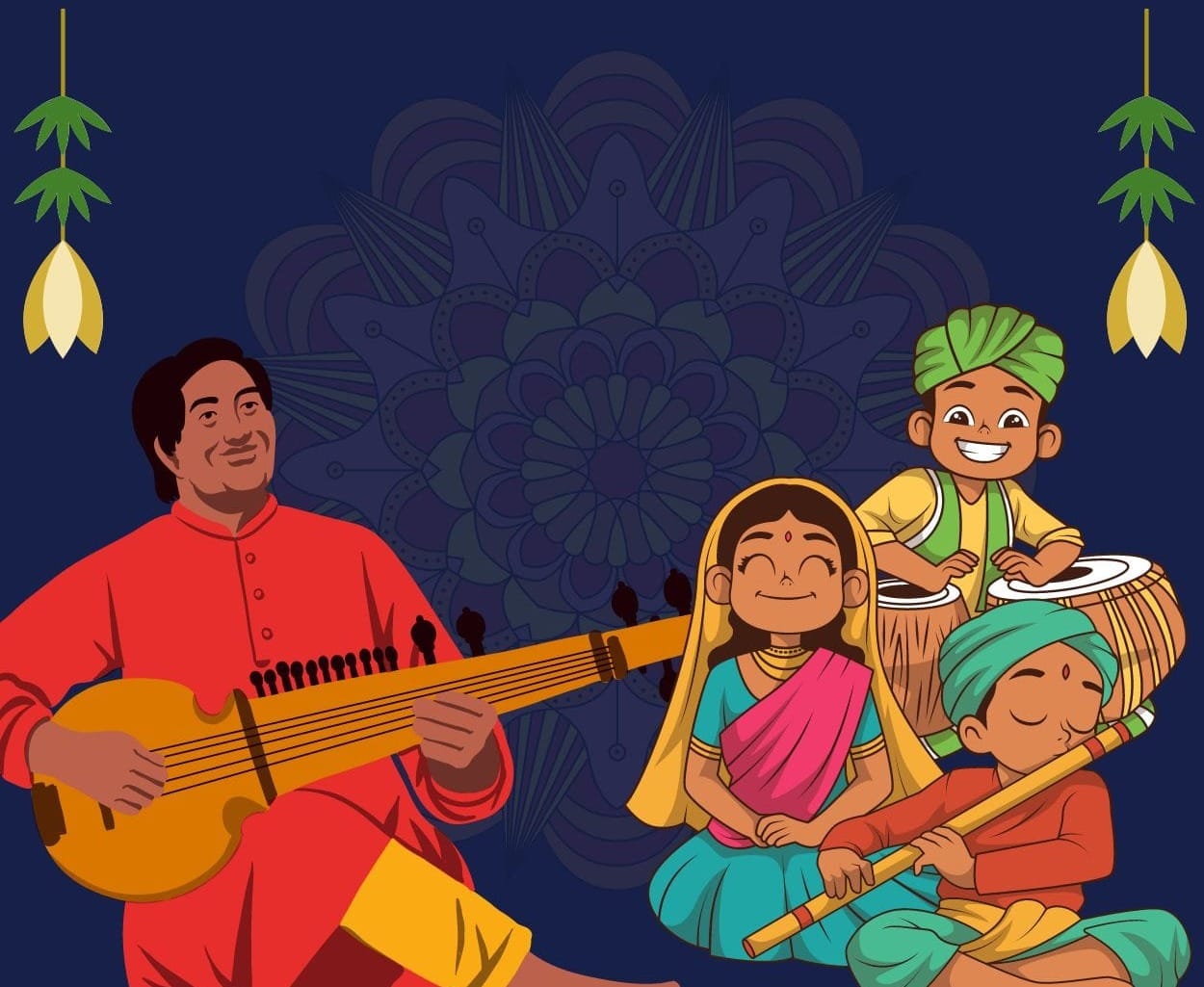
Beginner music students or the teachers conducting a music lesson for beginners will focus on Pitch and Rhythm even if we are singing a film song. These are the two major pillars of Carnatic music that act as the mother and father of music. From the very first Carnatic class itself, we will be looking at the pitch and rhythm.
To fix our foundation, we have to practice the basic exercises including Sarali varisais, Janta varisais, Sthayi varisais, Dattu varisais, Alankarams and a few more that we follow from a very ancient period. These patterns will help the singers identify the 7 notes, then sing the jumbled patterns, how to hit the higher and lower notes, and will also learn different talams. Learning these exercises in the right way will be a great investment for a long time for your general pitch and rhythm in any type of music.
b. Mastering the 16 Notes
Each and every style of music uses the 16 notes or the 16 swarasthanas. So it's very important to understand the 12 notes first and then the varieties including the 16 swarasthanas. Not only to understand them, but also to sing in the correct positions.
These 16 swarasthanas are the same in all kinds of music but they have different names. For example, The Carnatic raga Mohanam is equivalent to the Hindustani raga Bhoopali, and the Carnatic raga Sankarabharanam is equivalent to the Western C Major scale.
The 16 Swarasthanas
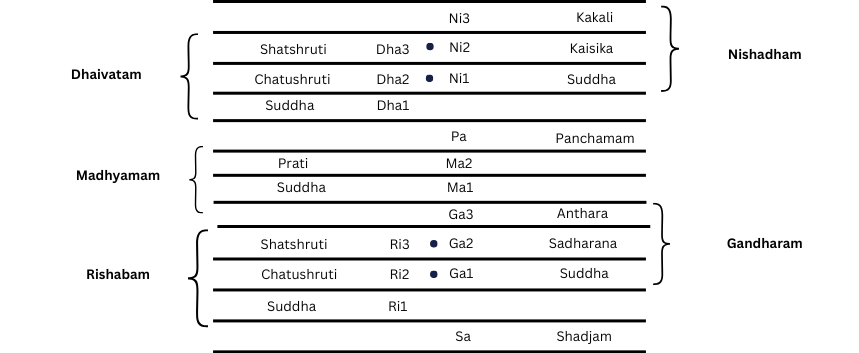
The use of 16 swarasthanas will result in plenty of ragas. We use different ragas in different compositions. Ragas are the combination of swaras and they act as the backbone of music. We can practice the 12 notes by singing patterns in different ragas, especially in alankaras which will be a thrilling experience as well.
c. Understanding Gamakas
Gamakas are the next important concept, mainly used in Indian music such as in Film music, Bhajans and so on. Indian music by nature uses a lot of gamakas (Sangathis), instead of singing plain notes.
People nowadays ask, how can we sing these gamakas? What should we do for that? What should I practice to bring these sequences in my throat? As a carnatic music teacher, I frequently get these questions.
Carnatic music is the best option for this. This helps in visualizing the gamakas. Gamakas are the oscillations used in music. These are commonly used in film songs. To understand the different sequences or the gamakas used in film songs, you should be able to visualize them. For that, it's very important to start from scratch. Below given are the different types of gamakas used in Carnatic music.
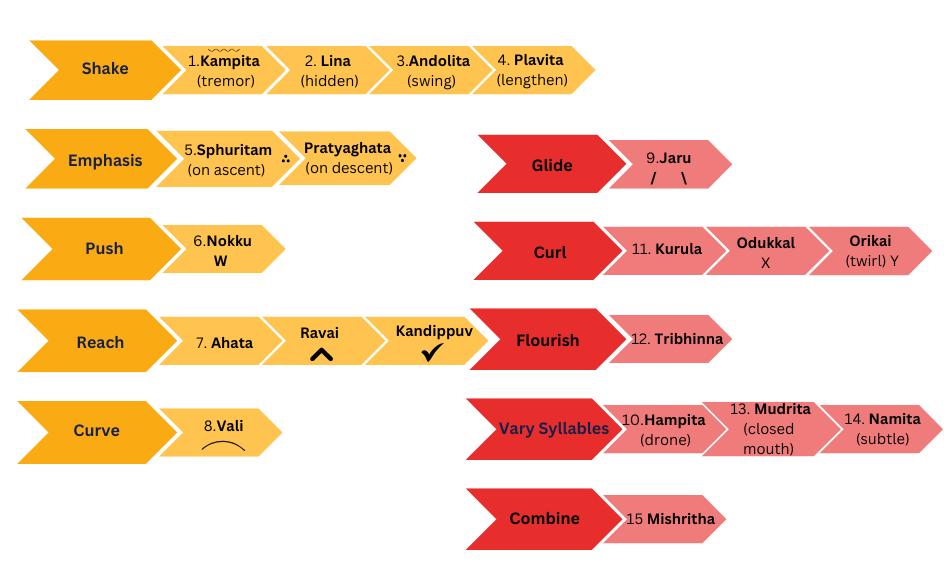
d. Develops Vocal Chords
Learning Carnatic music helps in strengthening the vocal cords and improving motor abilities. It aids in both accurate pronunciation and speech quality. Both vocal quality and singing quality are different. But one can achieve a good voice through practicing different patterns such as Janta varisais, where you sing the double and multiple swaras.
Breathing exercises are also an important thing that one can add to their practice sessions. Only if a person has good breath control, he/she can achieve healthy singing. Hence, starting Carnatic music from scratch is recommended.
e. Acts as a Stress Buster
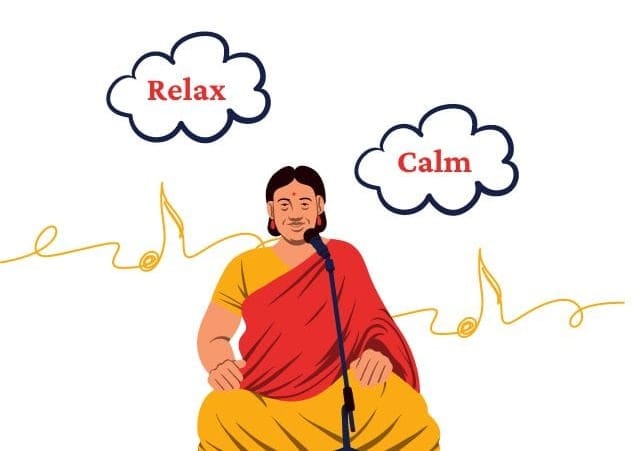
It's a fact that music calms and soothes one's soul and it has been proven scientifically that music helps to lower stress levels and blood pressure.
Music is of different types. Some can be faster, some are soft melodies, and so on. Faster music can make you feel more alert and concentrate better. Upbeat music can make you feel more optimistic and positive about life. A slower tempo can quiet your mind and relax your muscles, making you feel soothed while releasing the stress of the day.
If someone is listening or singing with focus and concentration, the thoughts around them will disappear. People follow a disciplined practice regimen say that music gives an equivalent benefit of yoga and meditation. After all, singing involves breathing and regulating the flow of air in and out of the body.
f. Improves Memory & Concentration
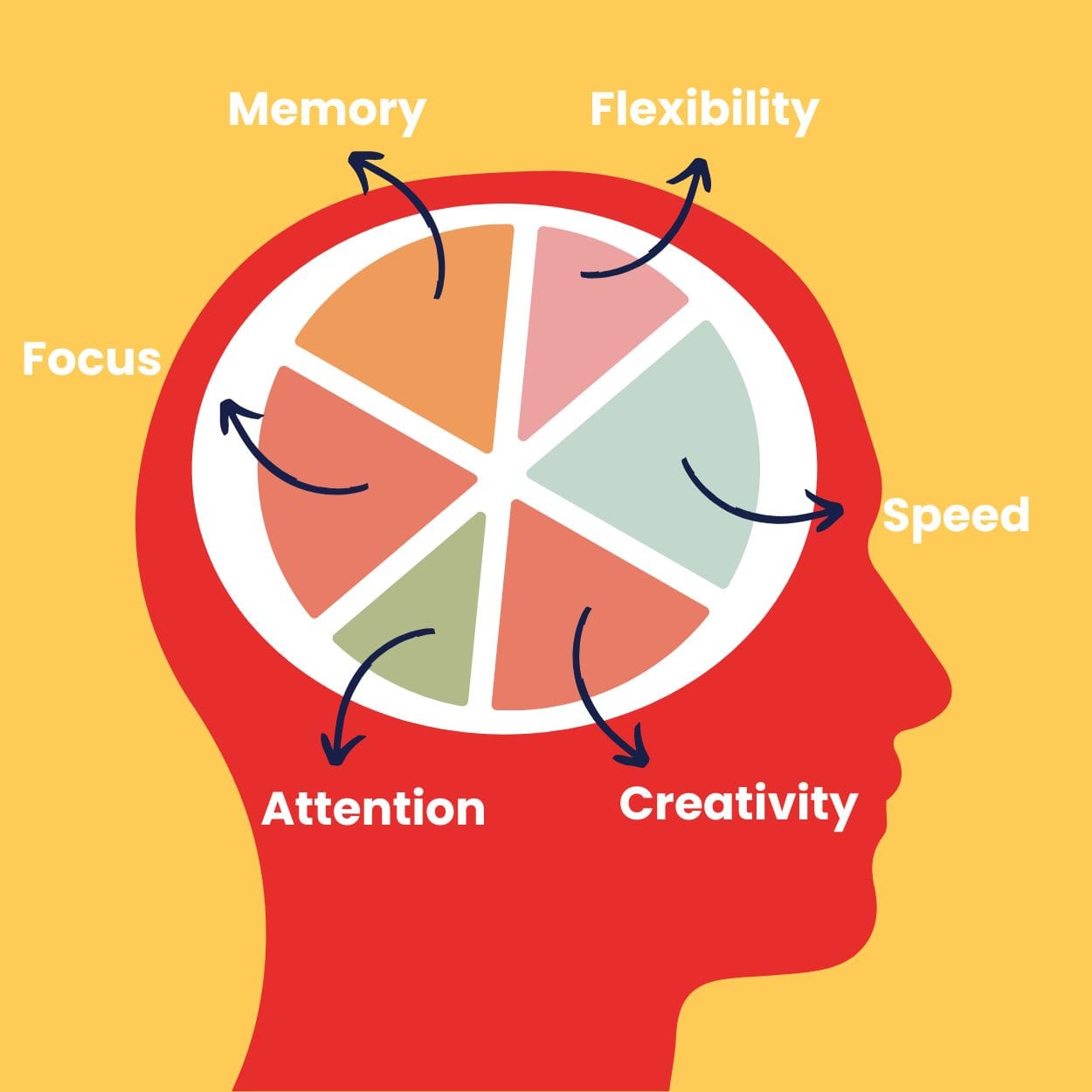
Music is one of the best extracurricular pursuits along with academics. Learning Carnatic music will help students improve their concentration skills by combining various patterns. We need to have good focus and concentration while singing.
The structured nature of Carnatic music lessons can help children develop their cognitive skills, as they learn to analyze and understand the different aspects of music. The student later on will start applying the same while engaged with academics or while doing some of their work.
g. Improves Math Skills

A person who is in a good relationship with Carnatic music knows that Carnatic music is full of Mathematics. Here we use different patterns, counts, and calculations with the help of swaras. Children develop a greater sense of rhythm, pattern recognition, and logical reasoning by internalizing these mathematical correlations. According to studies, children or adults who learn music do better in arithmetic disciplines, making Carnatic vocal music an effective instrument for improving general math skills.
h. Improves Listening Skills
Kelvi Gyanam is a frequently used word especially in Carnatic music. The practice of listening to great musicians other than our guru is also very important. Listening is an integral part to learning music. Listening to different genres will really help us in developing a creative mind.
Listening is of different types. One can just listen to the songs without looking deeply into the gamakas and ragas. And the next is listening through the perspective of a manodharma singer, who listens to all the minute plans used. A good music learner develops the ability to discern the nuances in music in terms of pitch, melody, oscillations (gamakas) and tempo. Listening is important as it provides motivation and inspires you to sing better. The more we listen, the more we sing.
Carnatic music is a great start for learning film songs as well. One can easily identify the notes, the ragas and the expressions used in a light song.
The benefits of Carnatic music are unstoppable. It helps a person to grow not only in music but also they gain the confidence and skills to ace in various fields. To reap the benefits of learning this intricate art form, it is best to enroll your child in an online music classes.
Spardha School of Music is the best option for your loved ones to make use of these benefits. You can learn from scratch with the help of talented gurus, who guide you throughout your musical journey. Let’s embrace the joy of learning the historical art form.
-Anagha Murali
Carnatic Vocal, SME
Spardha School of Music